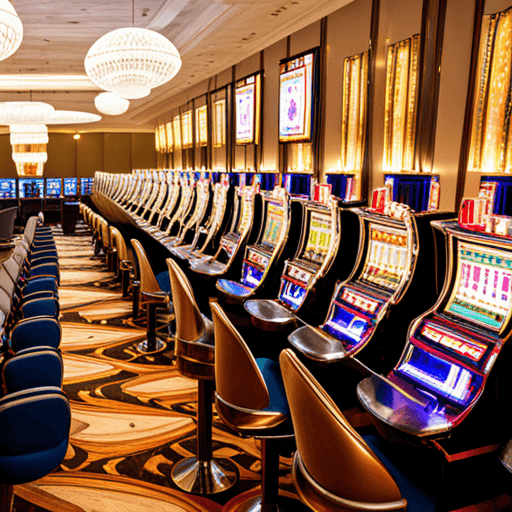
When we think of gambling activities, the initial pictures that often cross our minds are those of rotating wheel wheels, poker chips clattering on felt surfaces, and cubes flying across a gaming area. While numerous view these activities as simple pastimes fueled by luck, a deeper exploration reveals a fascinating blend of strategy, skill, and social engagement that elevates them well beyond simple luck. Regardless of whether you are a experienced player or a inquisitive newcomer, understanding the subtleties of these games can significantly enhance your enjoyment and appreciation.
Gambling games have developed over hundreds of years, with different cultures contributing to their diverse histories and different forms. From the intricate strategies of blackjack to the deception methods in card games, players engage in a battle of intellect as much as a gamble on numbers. This dynamic interplay between luck and skill creates a thrilling atmosphere that draws millions to casinos worldwide. As we delve into the realm of table activities, we will uncover the strategies that can shift the odds in your advantage and the community elements that make these games a popular choice for leisure and interaction.
The Strategy Behind Table Gaming
Casino gaming frequently combine a mix of skill and luck, which makes them fascinating for players who enjoy a test. Each game has its own set of rules and strategies that can affect the outcome. For example, in games like blackjack, participants are required to use tactics like card counting and grasping the odds to make smart decisions. This skill set can significantly improve the victory potential, differentiating seasoned players from novices who may depend entirely on luck.
Conversely, titles such as the roulette may appear to be entirely based on chance, but tactical thinking can also come into the equation. Players can select between different wagering tactics, such as the Martingale strategy, where they raise the bets after a loss. This method can establish a more controlled way to the game. Understanding the odds of specific wagers can also help participants make smarter decisions on the roulette table, demonstrating that even in titles of luck, strategy can enhance the enjoyment.
Additionally, poker is notable as a title that strongly focuses on tactics. In contrast to most gaming titles, the game of poker combines ability, mental acuity, and luck. Participants must also concentrate on the cards they are dealt but also take into account their rivals’ actions and wagering patterns. Mastering principles like table position, the odds of the pot, and interpreting bluffs is essential for winning. This depth of strategy in poker often creates to a more engaging experience for participants, where their decisions and skills greatly impact the match’s results.
Comprehending Probability and Odds
In the realm of casino games, likelihood and odds hold a critical role in determining a gambler’s potential consequences. Every match has its own collection of guidelines that define how the chance of succeeding or losing is calculated. For case, in matches like blackjack, participants have a chance to influence their odds through tactics, whereas in matches like roulette, the results are exclusively governed by luck. Understanding how these chances are measured can substantially impact how a gambler deals with the game.
Odds are typically expressed in two forms: ratio and decimal. Fractional ratios represent the ratio of the amount won to the sum staked, whereas decimal ratios show the total payout for a successful bet, including the stake. For instance, if a match has odds of 5 to 1, this means that for every one unit staked, a player could gain five units if successful. Understanding how to read these odds enables players to evaluate their potential winnings and formulate more informed decisions during play.
Players should also be aware of the casino advantage, which is the casino’s inherent benefit over the gamblers. Each game has a different advantage, and grasping this concept is important for handling one’s hopes and funds. Activities with a lower advantage, such as blackjack and baccarat, typically offer superior ratios for gamblers compared to activities like slots and keno. By recognizing the relationship between probability, odds, and the casino advantage, gamblers can enhance their gaming experience and strategize more effectively.
The Aspect of Casino Table Games
Table games at gaming establishments are often seen as a hub of community engagement, bringing participants together in a collective experience that extends far past the mere act of gambling. The atmosphere at a poker table can be electric, with players engaging not only with the game itself but also with each other. Joy, cheers, and, occasionally, friendly banter create connections that improve the overall experience of the gaming experience. This communal aspect can turn a alone endeavor into a dynamic gathering, making table games particularly enticing.
One of the fascinating elements of gaming at tables is the way it cultivates camaraderie among participants. Whether it’s collaborating to defeat the dealer at a craps table or exchanging tales between hands in a card game, the environment encourages interaction. Participants often share advice or tactics, creating a sense of community that boosts the fun. casino non AAMS sicuri This social dynamic can make new players feel included and less intimidated by the competitive nature of casino games. As the game continues, friendships may form, leading to a sense of belonging that keeps participants coming back to the table.
Moreover, the social aspect of table gaming extends beyond just the participants. Casino staff play a crucial role in facilitating interaction and maintaining the flow of the game. Their ability to engage gamblers with friendly conversation and their expertise in managing the table can create an inviting atmosphere. This connection between participants and dealers adds another layer of enjoyment, where gamblers feel bonded not only to one another but also to the staff. Such interactions are often what make the experience memorable, as players leave with tales to tell and relationships made, reinforcing the notion that gaming at tables are truly about something greater than luck.
